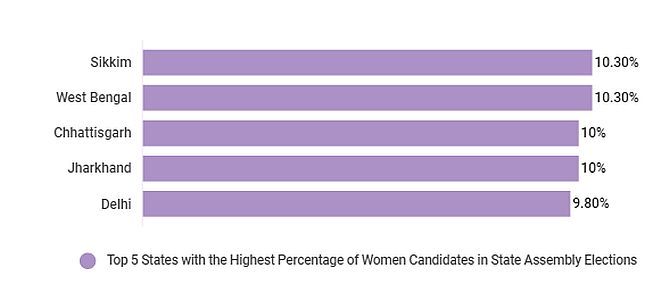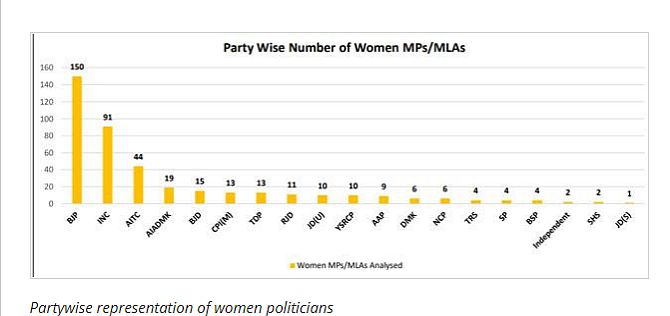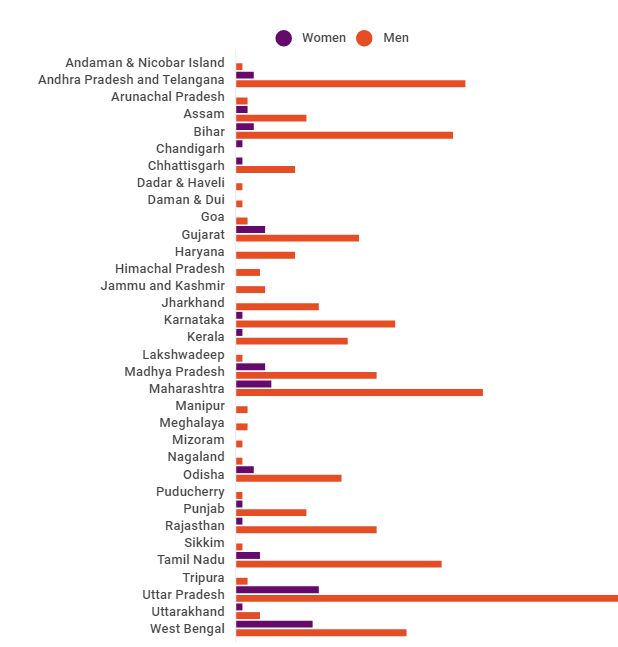Women have been making their presence felt in voter turnouts.
According to the Election Commission, the female voter turnout was higher than male turnout in 16 states and Union territories in the 2014 general election.
Surbhi Gloria Singh reports.
While politicians across India are keen to talk about women empowerment and the political legacies of India's female politicians like Indira Gandhi, Sushma Swaraj or Nirmala Sitharaman, these women remain largely anomalies in the political landscape.
The fact remains -- women are underrepresented in state and national decision-making bodies.
According to a report by the Association of Democratic Reforms and National Election Watch, the state of representation of women in the country's decision-making process continues to be dismal, with only 9% women MLAs and MPs across the country in 2019.

State-wise representation of women in India
ADR and NEW's empirical study of MPs and MLAs reveals how skewed gender representation is in the states.
None of the country's state assemblies had more than 10% women candidates, barring exceptions like Jharkhand (10%), West Bengal (10.30%), Sikkim (10.30%) and Chhattisgarh (10%), which had the highest percentage of women candidates.
Delhi had 9.8% women candidates in the fray.
The lowest number of women candidates is in Nagaland and Arunachal Pradesh (3% each) and Jammu and Kashmir and Manipur (4% each).

16th Lok Sabha status
As of 2014, women make up only 11.8% of the Lok Sabha and 11.4% of the Rajya Sabha, according to the Inter-Parliamentary Union.
In the 16th Lok Sabha election, the BJP gave only 38 of 428 tickets to women candidates, while the Congress gave 60 tickets.
Other national parties like the BSP fielded 21 women, the CPI fielded six, the CPI-M fielded 11 and the NCP four.
Politically, women have been making their presence felt in voter turnouts.
According to the Election Commission, the female voter turnout was higher than male turnout in 16 states and Union territories out of 35 in the 2014 general election.


